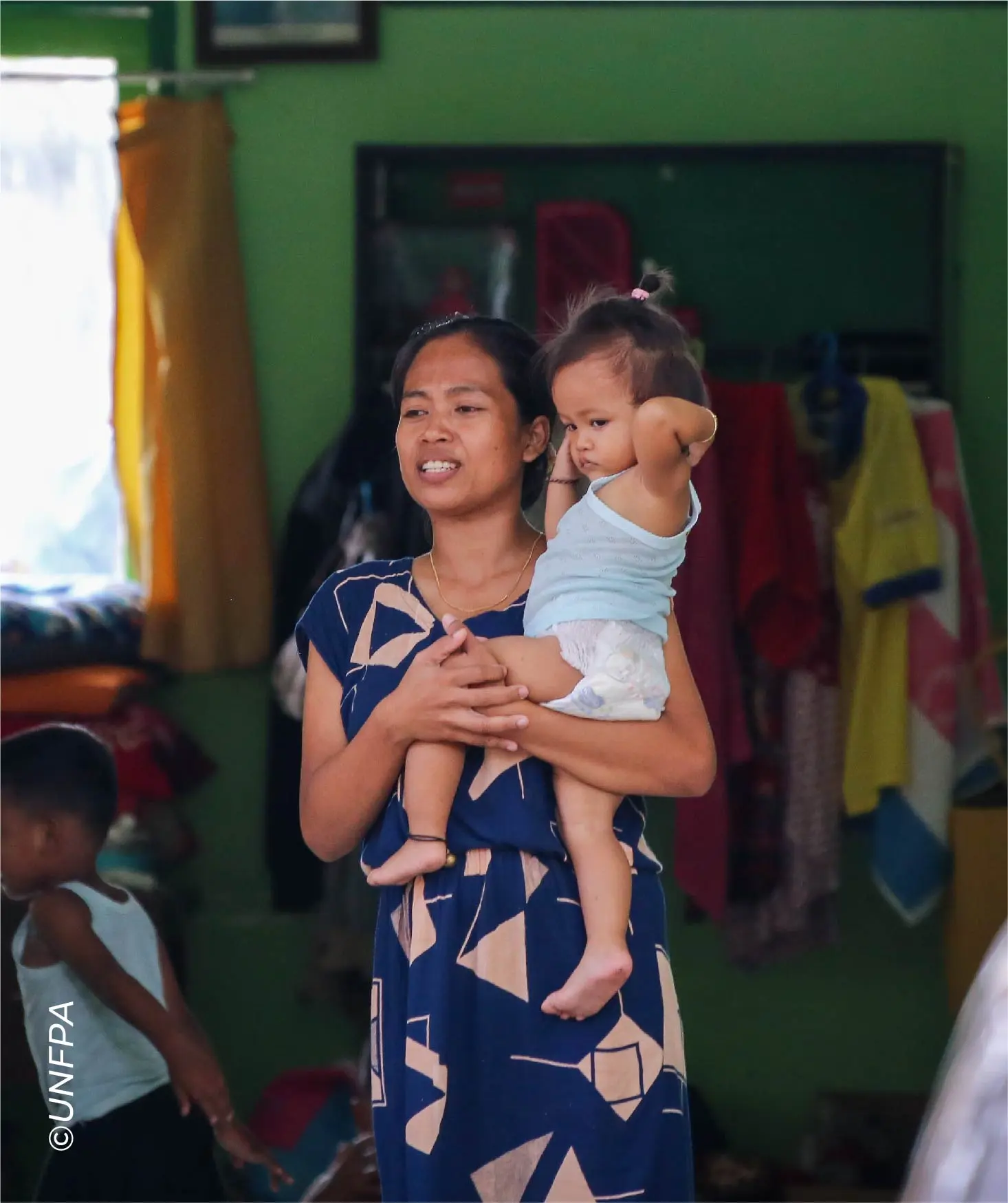United Nations In Indonesia
Country Results Report 2021
Better Maternal and Newborn Health


 Indonesia has made considerable progress on maternal mortality over the past decade, yet the country’s maternal mortality ratio remains high with some 177 deaths occurring for every 100,000 live births, compared with a regional average of 152 per 100,000 live births. Addressing stagnant maternal and newborn mortality ratios and improving the quality of care remains a critical area of focus for the UN in Indonesia and the Government.
Indonesia has made considerable progress on maternal mortality over the past decade, yet the country’s maternal mortality ratio remains high with some 177 deaths occurring for every 100,000 live births, compared with a regional average of 152 per 100,000 live births. Addressing stagnant maternal and newborn mortality ratios and improving the quality of care remains a critical area of focus for the UN in Indonesia and the Government.
In 2021, UN support for Government efforts to deliver better maternal and newborn health included the provision of technical assistance for new guidelines on maternal and perinatal death surveillance, and specific assistance to improve the care of vulnerable infants, including infants with low birth weight, those with possible serious bacterial infections (PSBI), and those born to HIV-positive mothers. UN research contributed to the Ministry of Health in 2021 upping recommended antenatal care visits from four to six. The Ministry also established technical guidelines for implementing point-of-care testing with plans to scale-up this initiative in 2022. UN expertise also contributed to new guidance on the case management of PSBI, or sepsis, which accounts for 23% of newborn deaths in low and middle-income countries, as well as new guidance on the case management of low birthweight babies. The UN helped the Ministry of Health produce nine videos on essential newborn and small baby care. The UN also supported the Ministry in finalising and launching a national policy on the prevention and control of birth defects and provided refresher training on the hospitalbased surveillance of birth defects.
In collaboration with the Ministry of Health, the UN developed a technical guideline on under-five mortality review aimed at identifying the causes and determinants of under-fives’ deaths and recommending mitigating measures. Meanwhile, UN advocacy helped the government update the National Integrated Management of Childhood Illness guidelines and algorithm, update the early child growth and development guidelines, and develop a framework for monitoring reproductive maternal, newborn child, and adolescent health.
The UN provided specific assistance to improve the care of vulnerable infants at the primary health care level, including those born to HIV-positive mothers to prevent mother-to-child transmission. With UN support, the Government updated its national guideline for the care of small babies in primary health care—by early 2022, the guideline’s operationalization was being modelled in West Nusa Tenggara province. At the community level, the UN and partner organisations supported the development of a booklet for parents and caregivers on the diagnosis, treatment, and care of children living with HIV. The booklet is expected to be disseminated by national networks of women living with HIV and is publicly accessible online.
In 2022, the UN will engage the University of Indonesia’s Faculty of Public Health to perform data analysis on the impacts of district planning for maternal mortality, building on the UN’s support in 2021 of several Indonesian government ministries in implementing integrated planning and budgeting on reproductive health with the aim of reducing maternal mortality.